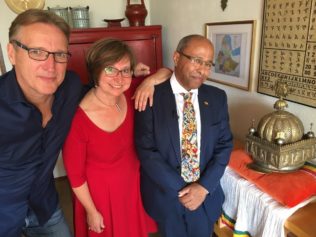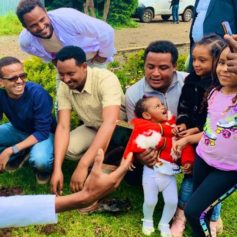In a continuing effort to focus more of the African continent’s attention on the plight of women in the previously announced African Decade of Women (2010-2020), Liberian President Ellen Johnson Sirleaf—one of two female presidents on the continent—pressed the international community to do more to insure food security in Africa.
“Unless we achieve food security, we can’t have sustainable development,” said Sirleaf, 73, who pointed out that women produce around 60 percent of food in developing countries.
During the decade of women, which was established by the African Union, the premier decision-making body on the continent, countries are trying to raise money and the public’s attention on the importance of women to the well-being of the African Union nations.
At the top of the list is food security, according to Sirleaf, who spoke in Addis Ababa, the capital of Ethiopia, at the headquarters of the African Union. Sirleaf, the winner of the Nobel Peace Prize in 2011, who is known in her country as “Iron lady,” pointed out that African Union was supporting 53 grassroots projects in 27 countries to advance the empowerment of women. Sirleaf spoke at a luncheon she was co-hosting with Joyce Banda, president of Malawi, the only other female president on the African continent. But Banda didn’t attend the summit because of the presence of Sudan’s President Omar al-Bashir, who is wanted by the International Criminal Court for alleged genocide in the Sudanese province of Darfur.
Jean Ping, the chairperson of the AU Commission, the AU’s premier decision-making body, also urged the Africa nations and the international community to pledge funds to support female empowerment in Africa. in the continent.
South Africa has pledged $125,000 for the cause of African women while Australia committed $100,000 for it. On Friday, the Economic Community for West African States (ECOWAS) and the New Partnership for African Development (NEPAD) signed an agreement for the establishment of a $1.2 million) Business Incubator for African Women Entrepreneurs (BIAWE) in the sub-region.


